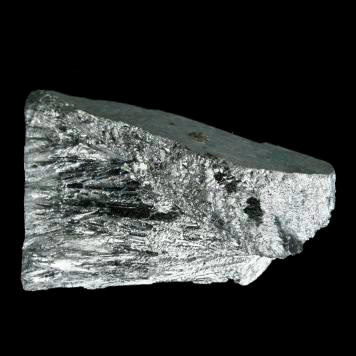◊
◊
◊
◊
Te-128 has the longest half-life of any unstable isotope



| Te | Z = 52 | ◊ ◊ ◊ ◊ ◊ |
Tellurium | |
| From the Latin "Tellus", meaning "Earth" | ||||
| (AM) Atomic Mass | 127.6 amu | ♦ | +2, +4, +6, -2 | |
| 989.8 °C | ♦ | 449.5 °C | ||
| 6.24 g/cm3 | ♦ | Hexagonal | ||
| 2.1 | ♦ | 1.35 Å | ||
| Solid | ♦ | (C) Heat Capacity | 0.202 J/g °C | |
| Electronic-Config | [Kr] 4d10 5s2 5p4 | ♦ | 869.23 kJ/mol | |
| 114.1 kJ/mol | ♦ | 17.49 kJ/mol | ||
| 1782 | ♦ | Romania | ||
| (E°) Standard Potential | Te ⇔ Te2- (-1.143 V) | |||
| Stable isotopes | 120Te, 122Te, 124Te, 125Te, 126Te | |||
| Discovered/Synthesized by | Franz Joseph Müller von Reichenstein | |||
| Natural Source | Isolated by the recoverey in processing copper ores | |||
| Common Uses | Alloys, semiconductors, photocopiers, computer disk, thermo-electric coolers and generators | |||
| Other Info | Only element that easily forms minerals with gold Te-128 has the longest half-life of any unstable isotope |
|||
Previous Element |
 |
Next Element |
||
| Back to Table |
Common Properties |
|||
| Home Page |
Definitions |
|||